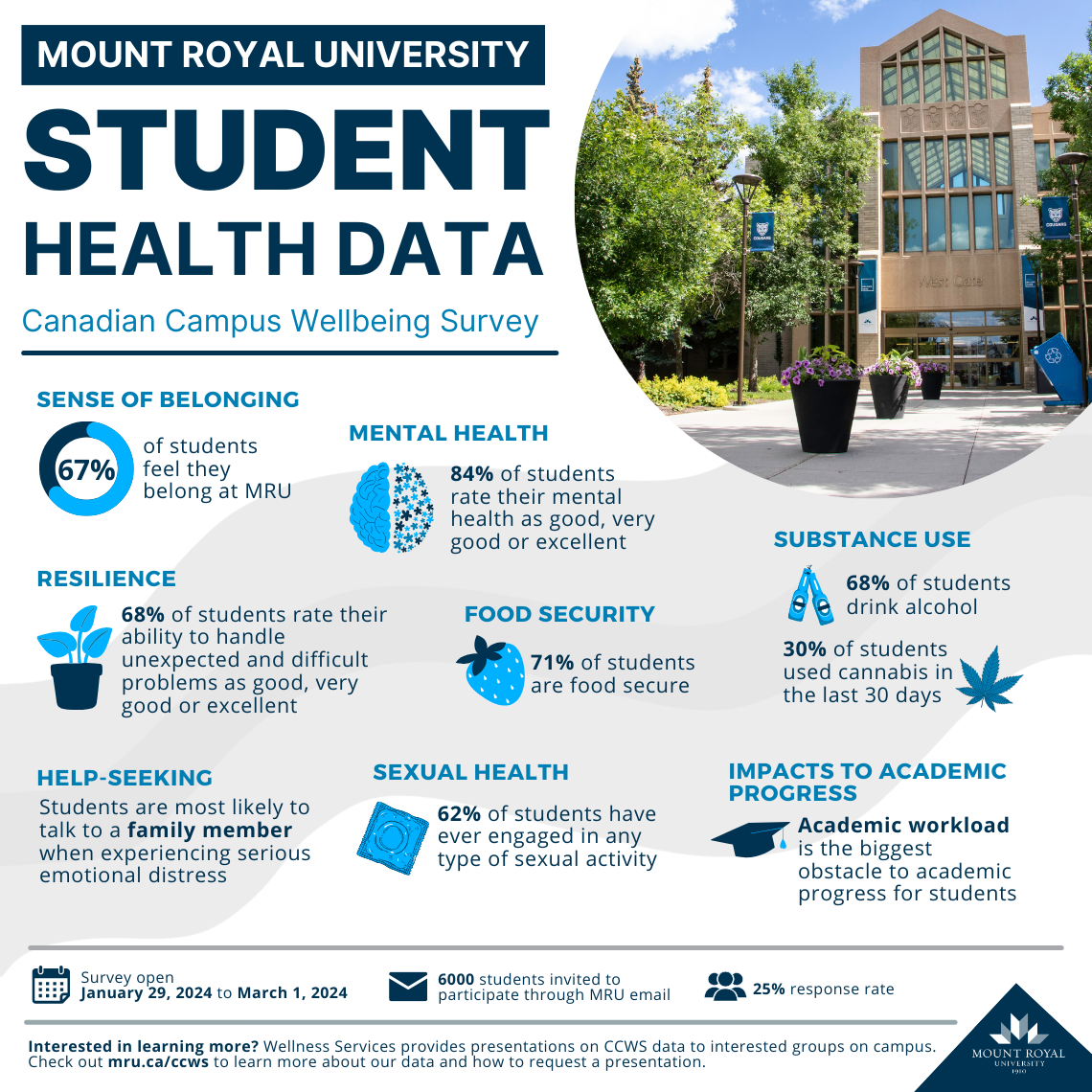
Canadian Campus Wellbeing Survey
The CCWS is a Canadian-based assessment tool MRU uses to collect information about the health and wellbeing of MRU students. The survey is confidential and participation is voluntary. The information collected from the CCWS is used to identify priority areas to focus on to support student health and wellbeing.
Core Focus Areas of the Study
This comprehensive survey explores the following critical topics
- Campus and academic climate
- Mental health
- Movement and sedentary behaviour
- Sleep
- Food security
- Substance use
- Sexual health behaviour
- Gender-based violence
- Help-seeking
MRU last administered the CCWS in January and February of 2024. 6000 MRU students were randomly selected to participate and were invited to complete the survey through their MRU email. The survey was open for five weeks and had a 25% response rate.
Key findings from this year's study
0%
Of students rated their mental health as good or better
0%
Of students feel confident managing unexpected challenges
0%
Of students experienced hunger due to financial difficulties
0%
Of students rated their sleep quality as fairly good or better
0%
Of students reported having engaged in sexual activity
0%
Of students reported that they consume alcohol


